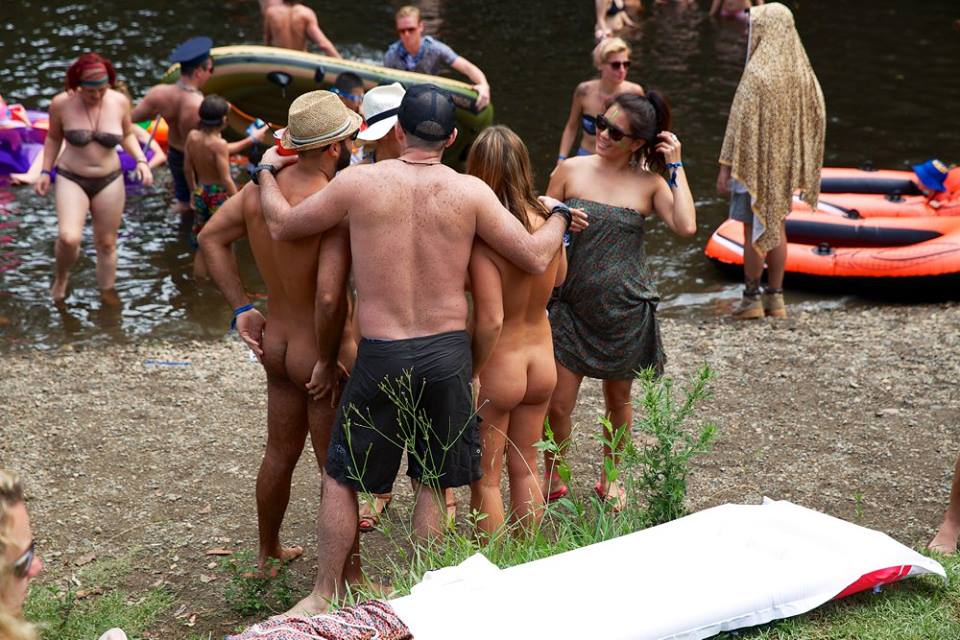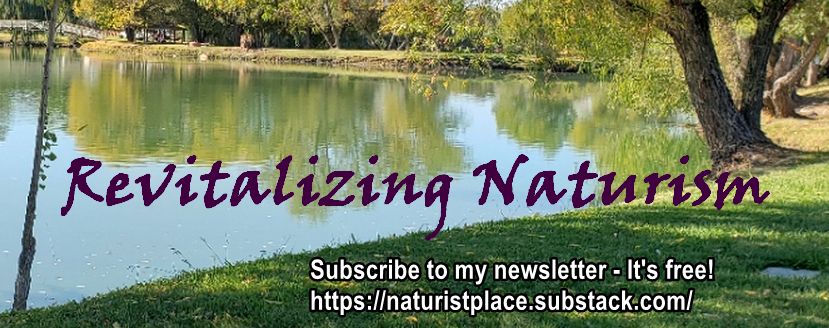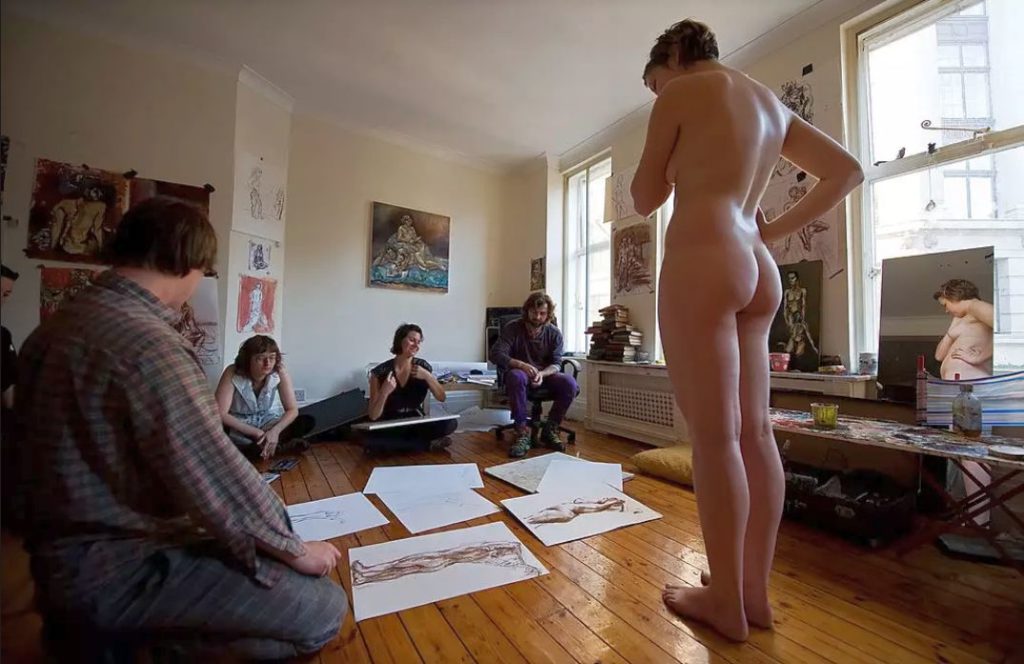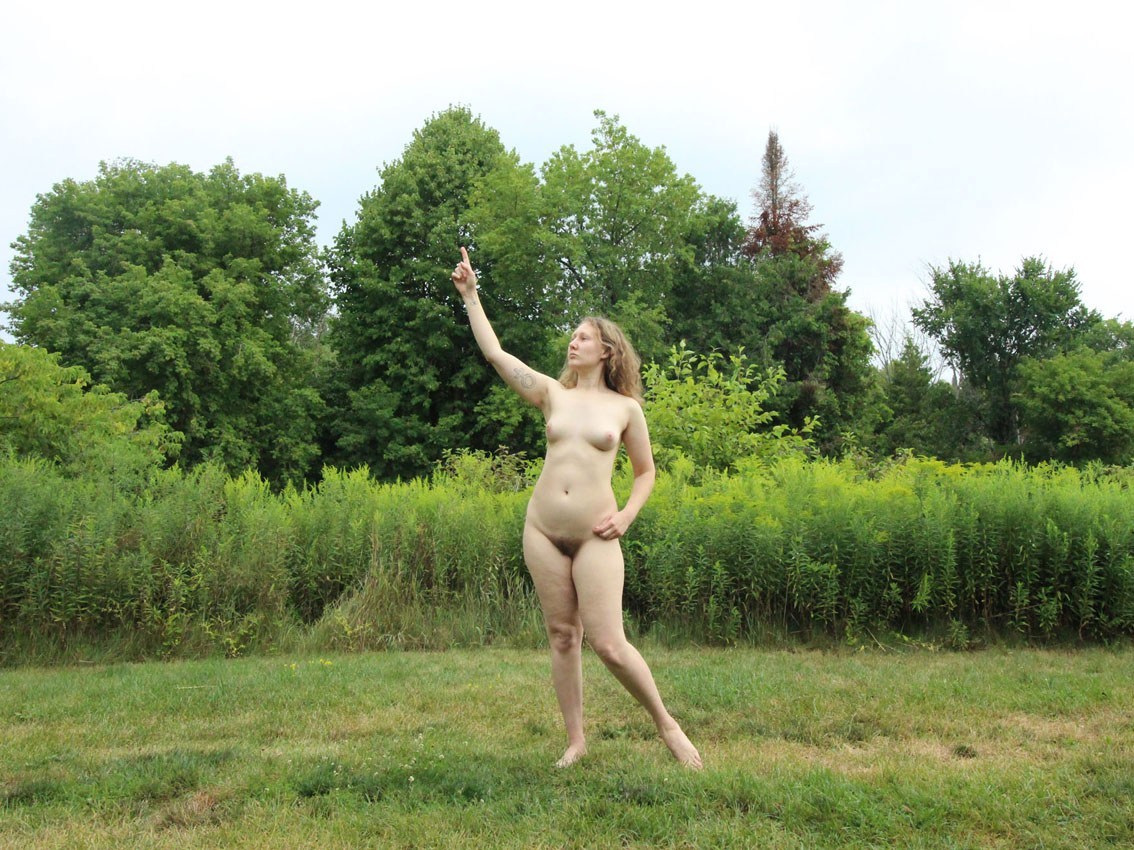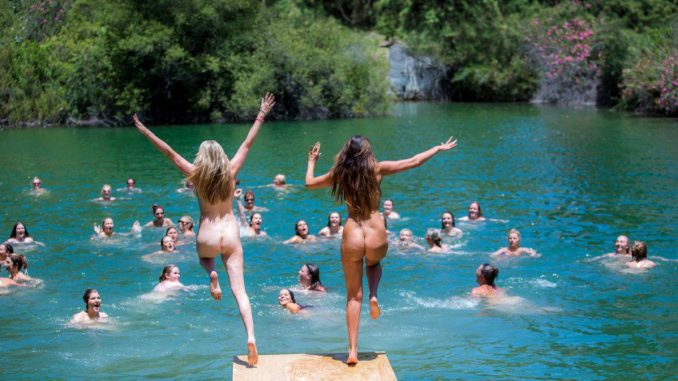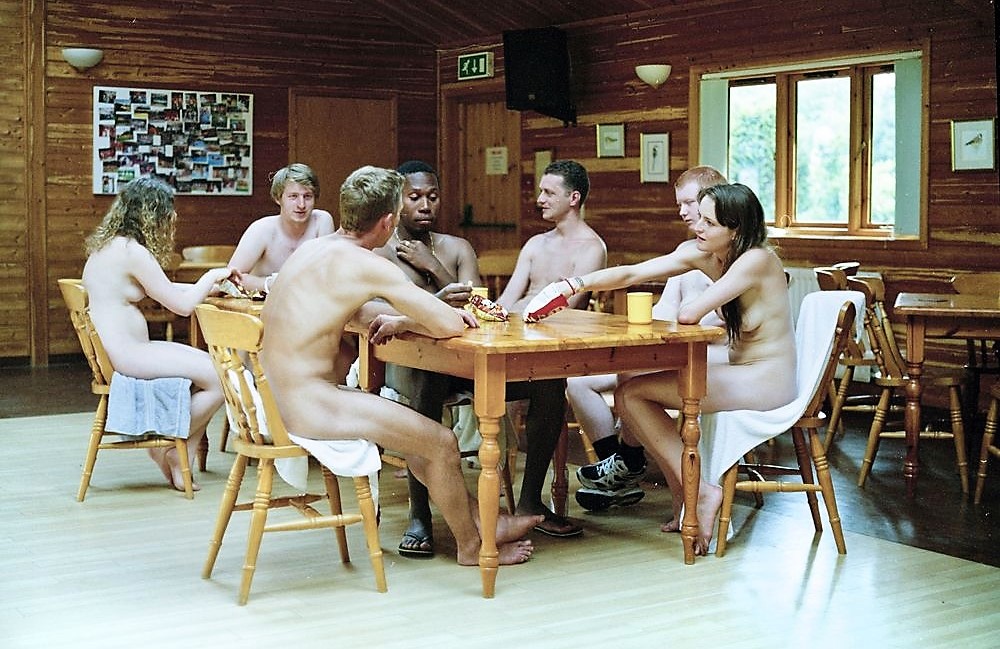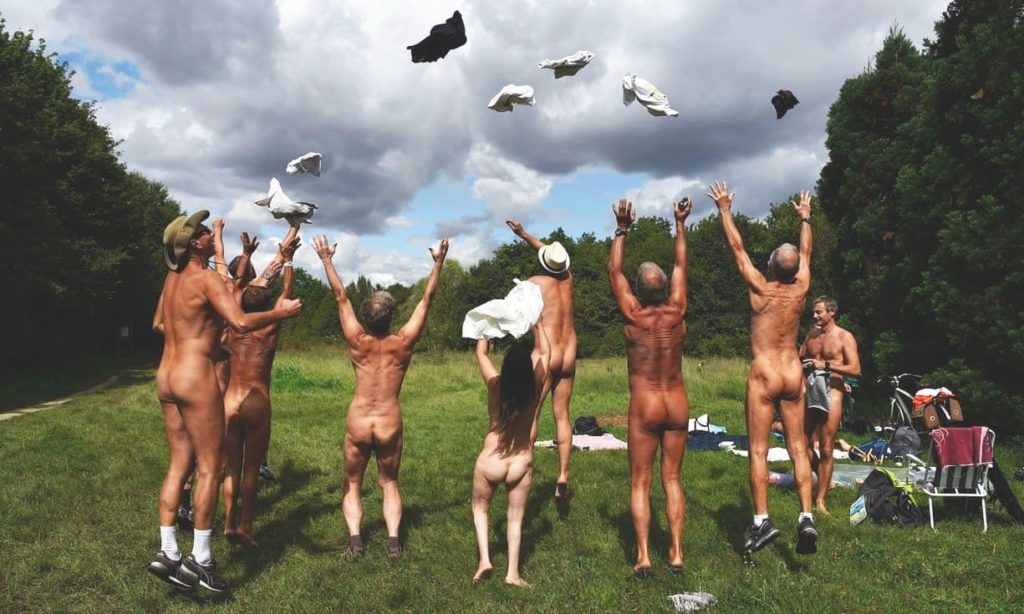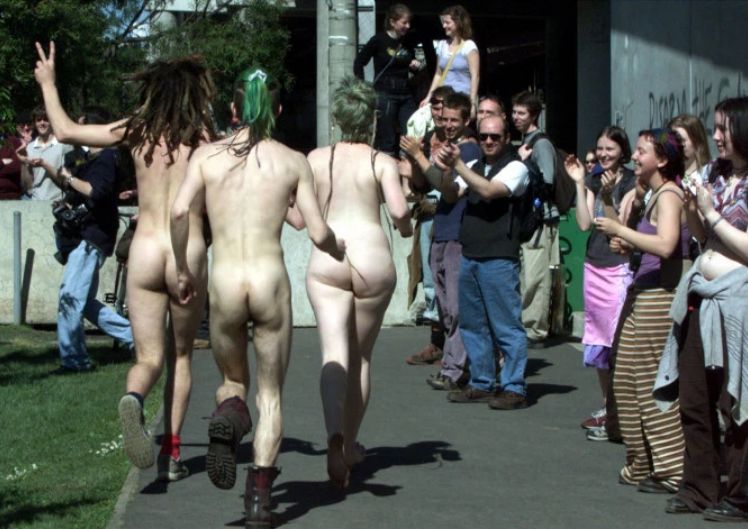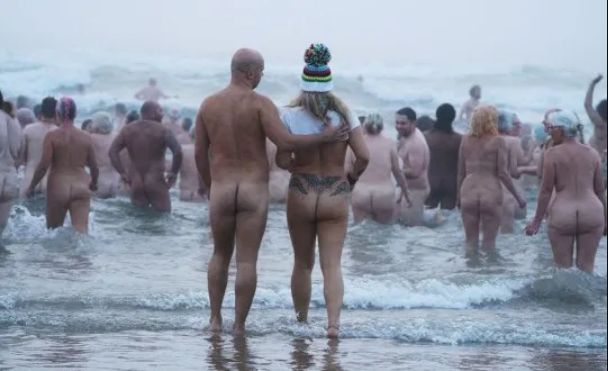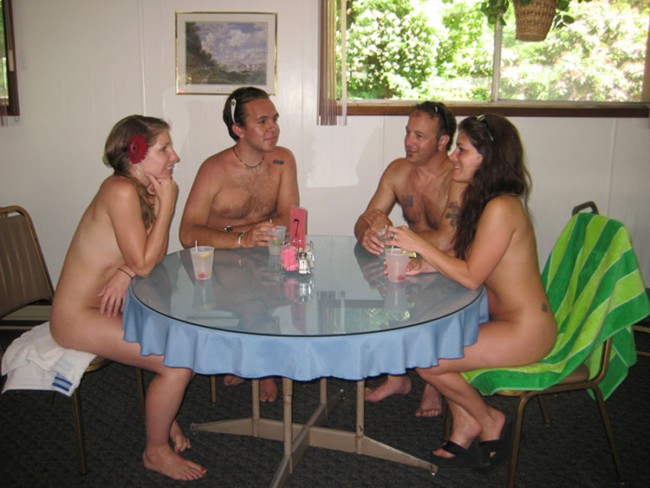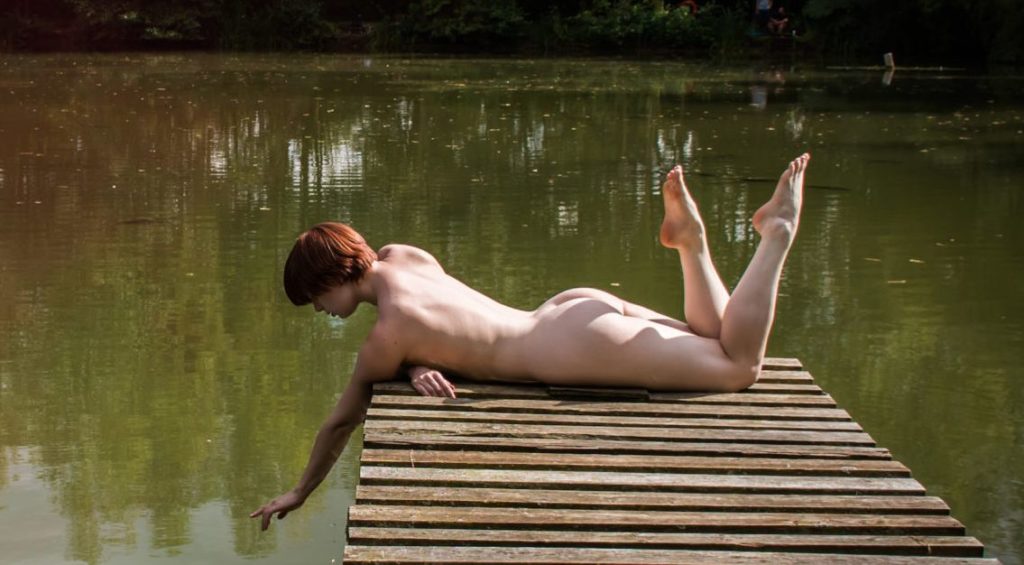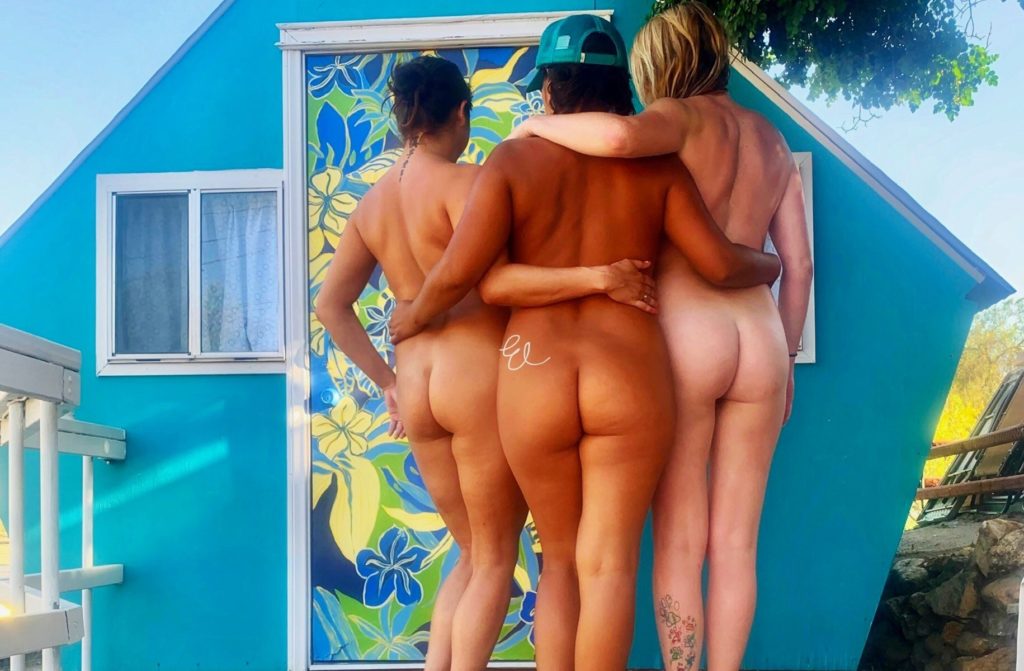
Photo credit: Mona Kuhn
Nick Alimonos is a prolific writer of fantasy fiction and also on naturism and philosophical topics. Why I am a Nudist is a recent post of his. I can’t disagree with any of the main points, but it does suggest a few additional thoughts. To be clear, I prefer to use the terms “naturist” and “naturism”, but I see little significant difference from “nudist” and “nudism”. Since Nick has written so much on naturism, I haven’t yet read all of it, so I apologize in advance if he has expressed the same ideas I’ll present here.
To begin with, Nick writes “The reasons I choose to be a nudist is something I feel I have failed to adequately express, but the simple answer is: naked feels good and naked feels natural.” Actually, Nick has written that before, for example, in “The Devil’s Advocate: Why Nudism is Wrong*” he tells about how he responded to his skeptical wife’s observation that many of the commonly cited justifications for naturism (such as healthfulness, etc.) can be countered with: “The genitals do not have to be exposed for that to work.” Indeed, one gets nearly as much vitamin D at the beach whether or not one is wearing a (sufficiently small) swimsuit. Nick’s eventual response is that “the reason we choose to be nudists … can be summed up in three simple words: It feels good.”
I certainly agree with that, but I don’t think it fully counters his wife’s observation. If what you’re wearing at the beach (or at home) is just a string bikini or a (man’s) speedo why does the exposure of a few additional square inches of skin make any significant difference? Wouldn’t the difference need to be qualitative as well as quantitative? And if so, what is the difference in the quality of the feeling, between covering nothing at all and covering only the genital area? I do believe there is an important difference in the quality of the feeling – and it’s decisive for naturists – but it requires a bit of explanation.
In the recent post, the very next thing Nick writes is that his realization about why naturists love being naked is “tantamount to a religious experience, a form of Buddhist-like enlightenment.” I think that the realization is far more Buddhist than Nick suggests. I can’t claim to know a lot about Buddhism, but the sense I have is that the ultimate goal is freedom from “needs” and, ultimately, from “desires”. For naturists that means, in particular, not only freedom from wearing clothes but also from feeling any need or desire to wear clothes. In this sense, very few naturists are able to achieve this degree of freedom – because physical comfort and the demands of society usually get in the way. However, it is the amount of freedom from needing or desiring to wear clothes that naturists are able to achieve that is an important part of why they are naturists. Freedom from quotidian encumbrances “feels good” by itself.
From there Nick goes on to explain why it is that being naked “feels good”. He observes that the skin is the body’s largest sensory organ. Consequently, wearing any clothing at all interferes with that organ’s ability to perform its function – in proportion to how much of the skin is covered by something else. Of course, if the proportion is small, as with a minimal bathing suit, that isn’t necessarily important. But in “ordinary” society, covering one’s skin by clothing is much more extensive most of the time. So naturally, naturists will prefer a social environment where the required amount of clothing is none, or at least as little as “possible” – as long as the sensations conveyed from their skin are pleasurable. Obviously, most naturists will choose to wear enough to avoid unpleasant sensations, such as excessive cold – but the more avid naturists will do so only reluctantly.
If enjoying nudity is only about what “feels good”, why would a naturist be reluctant to put clothes on if the ambient temperature is low? Presumably, there’s some point at which nudity stops feeling good. Many naturists, however, are able to tolerate lower temperatures than people who habitually wear clothes. (It’s humanly possible to tolerate rather low temperatures with very little clothing. See here or here for examples.) But committed naturists may still prefer being naked even if they find the temperature somewhat uncomfortable. Some will even trek naked on chilly Scottish Munros. That suggests there’s more to the preference for nudity besides pleasant sensory feelings.
A quote from Walt Whitman indicates what’s involved: “Perhaps the inner never-lost rapport we hold with earth, light, air, trees, &c, is not to be realized through eyes and mind only, but through the whole corporeal body, which I will not have blinded or bandaged any more than the eyes.” Clothing that covers any part of the skin diminishes sensory information coming through the skin. Just as covering eyes, ears, or nose will interfere with their sensory function, covering the skin with clothing has the same effect. Such covering is an impediment to our contact with the external world. We wouldn’t generally want to interfere with our ability to see pleasant sights, hear pleasant sounds, or smell pleasant scents. Likewise, why interfere with the skin’s ability to sense moderate sunlight, the warmth of a campfire, the stimulation of gentle breezes, or the caress of flowing water?
Nevertheless, I don’t think that’s still the whole story. Nick goes into great detail to make the case that “Nudity is Practical, Clothing is Not”. Obviously, that all depends on circumstances. Nudity is especially practical for various activities, such as swimming, exercise, sunbathing, washing cars, doing household chores, and (as far as naturists are concerned) socializing with other naturists. Clothing is impractical for many of those things just listed, but also because it costs money, has to be washed periodically, takes up space to be stored, wears out, needs to be changed to be “appropriate” in differing social contexts, and so on. But clearly there are situations where the degree of practicality is reversed – such as going anywhere that’s cold, interacting with non-naturists, or creating an appearance of authority, wealth, status, sophistication, or hipness. Notice how many of those factors are related to social interactions.
Nick also has a lot to say about “shame”, and how that is in fact simply an “illusion”. Shame related to nudity is a social construct that in most societies is conditioned in most children at an early age – by parents, peers, authority figures, and society in general. He points out, quite correctly, that “shame, and body taboos, are social constructs, which quickly disintegrate once examined closely.”
But there’s quite a lot more that can be said about this social aspect. In my opinion, the way nudity works in a naturist context may be the most compelling reason for being a naturist in the first place. Consider the simple social custom of shaking hands with a new acquaintance or a friend one hasn’t seen for a while. Supposedly the custom arose as a way for people to demonstrate to each other that they aren’t carrying a weapon and don’t pose any threat. I would suggest that – in any context where clothing is optional and nudity is allowed – choosing to be naked signifies that one neither poses a treat to others nor feels any threat from them. And therefore friendly interaction is possible, while naked, without fear of improper or unwanted behavior from others.
In most societies, there are various functions fulfilled by wearing clothes. As already mentioned, one function is that clothing can signify things like authority, wealth, status, sophistication, or hipness. However, clothes can be used to conceal or mislead about personal characteristics rather than to convey accurate information. Naturists rightly claim that when everyone’s naked, it’s not quite so easy to deduce accurate information about another person – or be deceived about the truth – by the clothes they (don’t) wear. At the same time, though, it’s incorrect to suppose that nudity prevents making judgments about things that clothing can signify. The truth is that people, even if naked, reveal a lot about themselves in a number of ways, such as their manner of speaking, their vocabulary, their body language, the things they talk about, and feature of their body’s appearance (hair styles, jewelry, tattoos, physique, etc.) Some of those features can be deceptive too – but not as readily as with clothing.
I think non-naturists probably regard clothing as a sort of armor protecting them against judgments others might make about them – or against possible overt unwanted behavior. People are naturally wary of how others they don’t know well might think about them or behave towards them. It’s just human nature for people to be concerned about their appearance to others, let alone about their physical safety. But, at least, when everyone’s naked, nobody uses clothing as armor – so there’s less reason to think clothing is necessary. This assumption is even better in an environment in which naturist behavioral norms are in effect – for instance, at popular clothing-optional beaches, naturist clubs and resorts, body-painting events, “World Naked Bike Rides”, and private homes of other naturists.
The problem in most societies today, including ours, is that most people don’t know what the naturist behavioral norms are – specifically that naturists don’t need clothing in order to behave well and respect others’ boundaries. All societies depend, to a large extent, on the existence of sensible behavioral norms. Societies can’t function if people can’t trust most others they interact with to behave “properly” and predictably. Educating society about naturist norms is a problem that must be solved, in order for naturism to become more “normal” and acceptable. Only then will people realize that the “armor” provided by clothing isn’t necessary. If others around me are comfortable being naked, why shouldn’t I be also? That’s a big reason why people who realize this can become naturists themselves and enjoy a naturist lifestyle. It’s simply more pleasant to interact with people who don’t need or desire to wear clothes, because there’s general agreement that whatever armor clothes provide isn’t necessary.
There’s another way of thinking about this. Among naturists, it’s easier for people to be more open with each other in their interactions when they’re naked. Nudity expresses (honestly, one hopes) that “I have nothing to hide” and nothing to be ashamed of. Think about the words “close” and “disclose”. “Close” is the opposite of “open”. So to “disclose” something is to become more open about it. “Disclothe” is an actual word, meaning “to remove clothes”, though it’s seldom used in modern English – but it is in the Oxford English Dictionary. It means the opposite of “clothe”, so is the same as “undress”. Now think about how similar “disclothe” sounds to “disclose”. That might be simply coincidental – but it accurately represents what’s going on. One discloses something of oneself by disclothing. Naturists consider that a good thing. Being “nude” or “naked” in both law and common parlance means that genital areas (and/or female breasts) are uncovered. Therefore, covering those parts is not compatible with what naturists seek to do.
